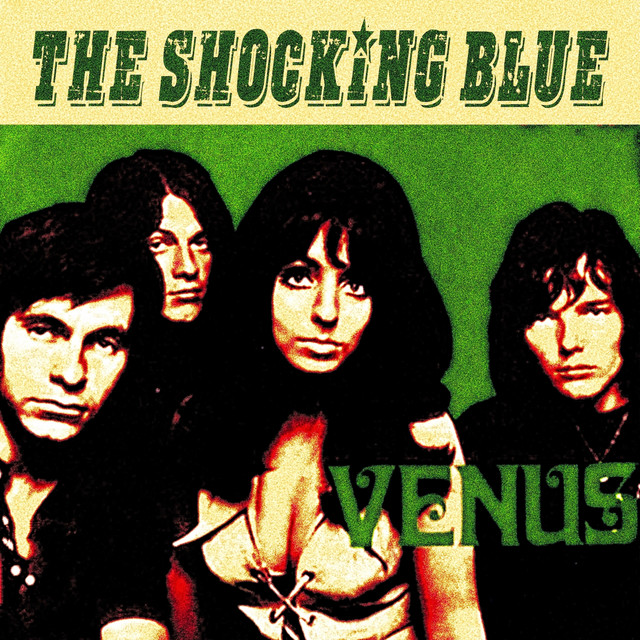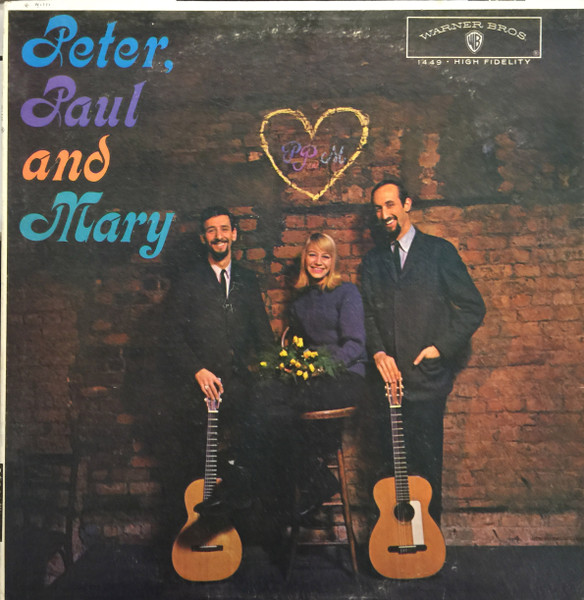 “Please Mr. Postman” by The Marvelettes isn’t just a catchy pop hit; it’s a milestone in the evolution of popular music. Released in 1961, the track has become synonymous with the golden age of Motown, a period when the label’s unique blend of soul, pop, and teenage longing helped reshape the American musical landscape. This was the first Motown single to hit number one on the Billboard Hot 100, and it did so not only with the freshness of youth but with a powerful new voice—Black teenage girls—asserting themselves in a male-dominated industry. The Marvelettes’ debut became more than a breakout hit; it was a cultural statement delivered with harmonies and heartbreak, and its impact still reverberates today.
“Please Mr. Postman” by The Marvelettes isn’t just a catchy pop hit; it’s a milestone in the evolution of popular music. Released in 1961, the track has become synonymous with the golden age of Motown, a period when the label’s unique blend of soul, pop, and teenage longing helped reshape the American musical landscape. This was the first Motown single to hit number one on the Billboard Hot 100, and it did so not only with the freshness of youth but with a powerful new voice—Black teenage girls—asserting themselves in a male-dominated industry. The Marvelettes’ debut became more than a breakout hit; it was a cultural statement delivered with harmonies and heartbreak, and its impact still reverberates today.
At its core, “Please Mr. Postman” is deceptively simple. A girl waits anxiously for a letter from her distant boyfriend, imploring the local mail carrier for good news. It’s a scenario familiar to many during the early ’60s, when long-distance romance required tangible, handwritten proof of affection. But the Marvelettes, fronted by the powerful Gladys Horton, infused that waiting game with both innocence and aching desire. The delivery of the lyrics—pleading yet bold, restrained yet emotionally saturated—gave the song a resonance that transcended its straightforward lyrics. The way Horton sings the line “Wait a minute, Mr. Postman,” with an audible blend of desperation and hope, tapped into a youthful emotional reservoir and brought teenage girlhood to the forefront of American music in a way rarely seen before.
The story of “Please Mr. Postman” began in Inkster, Michigan, where a group of high school girls came together to form a singing group initially called The Casinyets (as in “can’t sing yet”). They were discovered through a talent contest and found themselves auditioning at Hitsville U.S.A., the headquarters of Motown. They impressed Berry Gordy, the label’s founder, enough for him to take a chance on them. Motown was already establishing itself as a formidable force in rhythm and blues, but hadn’t yet cracked the pop charts in a major way. “Please Mr. Postman” would be that breakthrough.
The song was co-written by Georgia Dobbins, a member of the original group, with later rewrites by Motown’s Brian Holland, Robert Bateman, and Freddie Gorman. Gorman himself was a real-life postman, which lent an extra layer of authenticity to the lyrics. The Marvelettes recorded the track with the backing of Motown’s house band, the Funk Brothers, whose tight musicianship anchored the song’s blend of doo-wop, soul, and girl group pop. The production is emblematic of early Motown: upbeat and brimming with energy, but never overwhelming the singers. This was a time when the voices were the centerpiece, and The Marvelettes’ harmonies—particularly Horton’s robust lead—provided a perfect vehicle for the longing expressed in the lyrics.
Beyond its musical prowess, “Please Mr. Postman” opened doors. It was the first Motown single to reach number one on the Billboard Hot 100, doing so in December 1961. That success marked a turning point. Until then, Motown had made inroads primarily within R&B circles, but now the pop mainstream was listening. It was an early sign of the crossover power Motown would wield throughout the 1960s and beyond. The song’s achievement helped set the stage for future acts like The Supremes, The Temptations, and The Four Tops to dominate both Black and white radio stations.
The track’s triumph was particularly meaningful given the historical context. The early ’60s were a time of deep racial division in the United States. The Civil Rights Movement was gaining momentum, but segregation and discrimination were still daily realities. For a group of Black teenage girls to achieve mainstream pop success was no small feat. They were breaking racial barriers, challenging gender norms, and carving out space in an industry that rarely gave young women of color a platform. “Please Mr. Postman” was a Trojan horse of sorts—sunny and palatable on the surface, but subversive in its cultural implications.
The Marvelettes themselves were propelled into stardom, though their fame was more of a prelude than a sustained headline. While they would have several more hits—like “Beechwood 4-5789” and “Don’t Mess With Bill”—their role in the Motown story has often been overshadowed by later acts. That’s a shame, because without the commercial success of “Please Mr. Postman,” the Motown machine might have taken longer to reach its full power. The Marvelettes were pioneers, and their debut single was their rallying cry.
The song’s influence didn’t end with its initial release. “Please Mr. Postman” has enjoyed a long life through covers and cultural references. Most famously, The Beatles recorded their own version of the song in 1963, showcasing their early admiration for Motown and girl groups. Their rendition, slightly faster and more rock-oriented, brought the song to a new audience and reaffirmed its place in pop canon. John Lennon’s raw vocal added a new layer of urgency, and the Beatles’ cover was emblematic of how deeply American R&B had permeated British pop sensibilities. In a way, the song helped to forge a bridge between Motown and the British Invasion, creating a musical feedback loop that enriched both traditions.
In 1975, the Carpenters also recorded a version of “Please Mr. Postman,” which again hit number one on the Billboard Hot 100. Karen Carpenter’s smooth vocals and the song’s slightly syrupy arrangement were a far cry from the raw energy of the Marvelettes’ original, but it’s a testament to the song’s sturdy bones that it worked across such varied interpretations. With two number one versions in two different decades, the song proved itself to be a timeless piece of pop songwriting.
Part of what makes “Please Mr. Postman” so durable is its emotional universality. The situation it describes—longing for communication, hoping for news, feeling suspended in uncertainty—is one everyone can understand. While the specific medium may have changed (letters have given way to texts and DMs), the sentiment remains. That craving for connection, that flutter of hope when you hear from someone you love, is eternal. And the way the Marvelettes express that feeling, with harmonies that soar and a beat that keeps driving forward, ensures that the song never feels dated, even more than sixty years after it first hit the airwaves.
There’s also something especially poignant about the physicality of the song’s imagery. The letter, the postman, the mailbox—these are all tactile, concrete symbols in a way that modern love songs often eschew. Today’s digital world is instantaneous and often ephemeral; “Please Mr. Postman” reminds us of a time when love required waiting, when desire was a slow burn rather than a push notification. That kind of patience is rare today, and perhaps that’s part of what gives the song its nostalgic power.
From a musical standpoint, “Please Mr. Postman” is a masterclass in how to make a hit that feels both personal and universal. The chord progression is simple, built around I-IV-V structures common to early rock and roll, but it’s the performance that elevates it. Horton’s voice has both grit and sweetness, a quality that would become a Motown trademark. The backing vocals are crisp and responsive, echoing and reinforcing the lead without ever overshadowing it. And the Funk Brothers’ instrumentation gives the song an irresistible momentum. There’s a bounce to the rhythm, a push-and-pull between urgency and restraint, that keeps the listener hooked from the first “Wait a minute.”
While the Marvelettes never became as synonymous with Motown as The Supremes, their place in history is secure. “Please Mr. Postman” wasn’t just a song—it was a launching pad, a crack in the wall, a pop music earthquake whose aftershocks would be felt for decades. It set a precedent for young, Black female groups in the music industry and proved that Motown could not only compete with the biggest labels but surpass them. The Marvelettes did something extraordinary, and they did it with a song about checking the mail.
Today, “Please Mr. Postman” continues to resonate. It’s featured in countless films, television shows, and commercials. It’s taught in music history classes as a landmark moment in the rise of Motown. It’s played at weddings and dances and on oldies stations around the world. But most of all, it lives in the voices of those who sing along, waiting with bated breath for the postman to bring them word of love. Whether you heard it on a dusty 45, on your parents’ stereo, or streaming through your earbuds, the song has a way of sticking with you. It lodges in the heart as much as in the head, reminding us that sometimes the simplest stories are the ones that speak loudest.
The enduring charm of “Please Mr. Postman” lies not just in its hook or its historical significance, but in the way it encapsulates a particular kind of yearning—one that’s at once rooted in a bygone era and completely timeless. The Marvelettes may have been singing to a postman in 1961, but their message still rings out today, stamped, sealed, and delivered straight to the soul.


